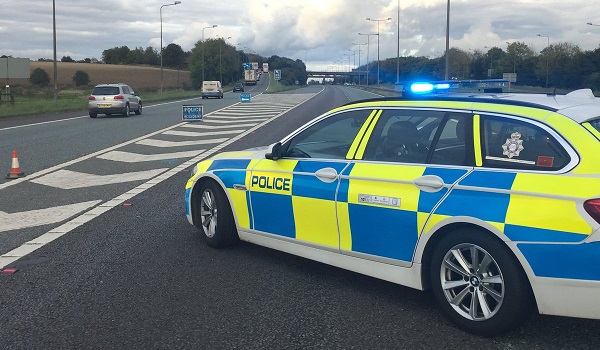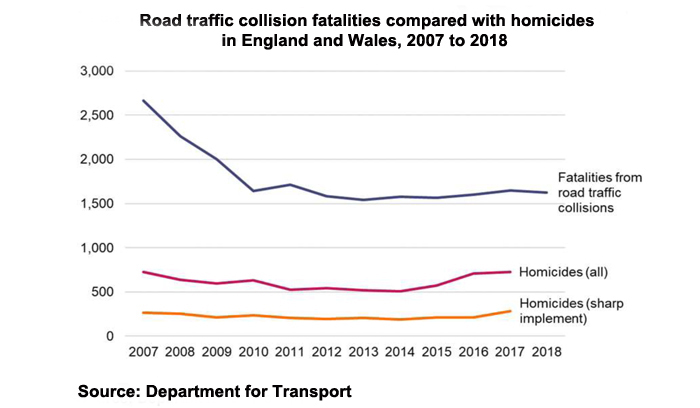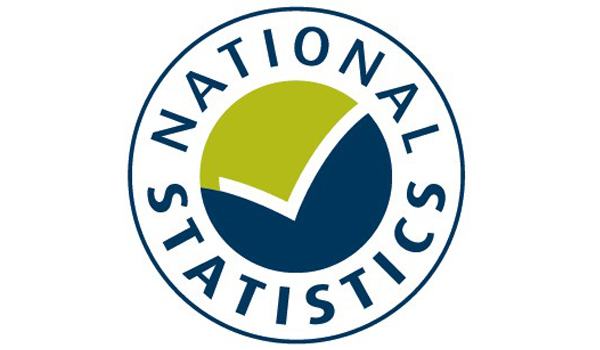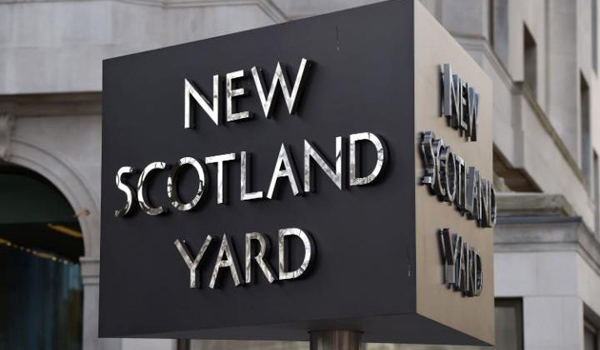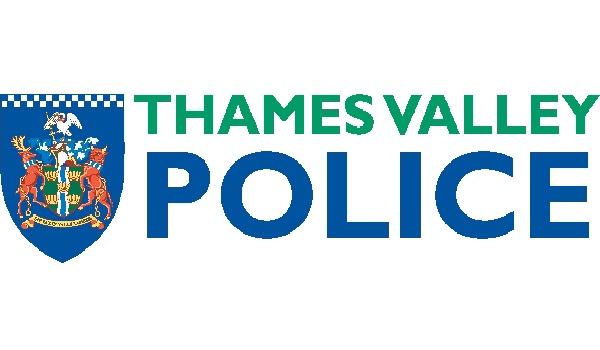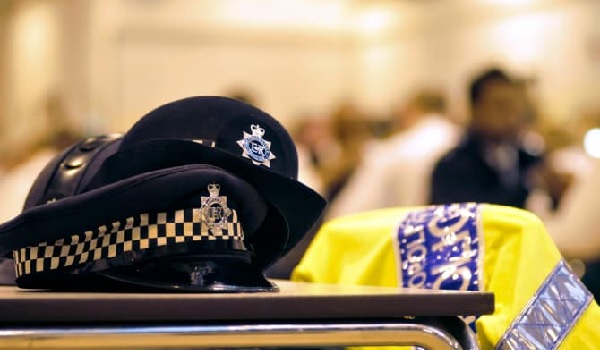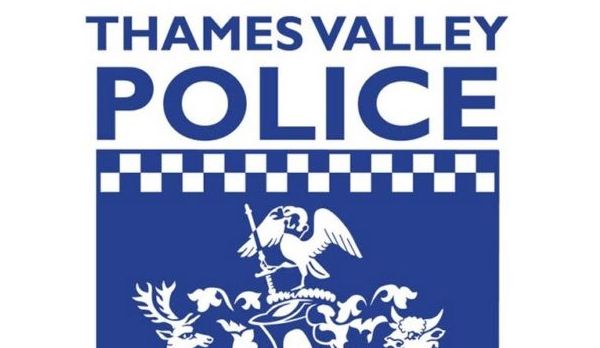HMICFRS report on roads policing shows urgent need for resources
The importance of how roads in England and Wales are policed has diminished alarmingly, according to a report by Her Majesty’s Inspectorate of Constabulary and Fire and Rescue Services (HMICFRS).
HMICFRS found drug-drivers were “being tolerated”, breathalyser tests were down by a quarter and fines for not wearing a seatbelt and using a mobile while driving had dropped considerably, with cuts to roads policing resulting in “fewer officers dealing with offences that cause road deaths”.
In the report published today (July 15), inspectors said that despite the high number of people killed in England and Wales each year, roads policing was seen as “less of a priority than it should be”, with force police and crime plans often making little or no reference to it.
Faced with limited forensic budgets and increased costs, HMICFRS said forces have told officers to “restrict” the use of drug screening tests and limit the number of blood samples submitted for analysis”.
“In one force, we were told that – although the cost of analysis was a factor – the main restriction was the limited capacity of the forensic service provider. This resulted in the whole force being restricted to nine submissions per month, and so officers were discouraged from being proactive,” said inspectors.
“The inescapable conclusion is that offenders who are suspected of driving while under the influence of drugs are being tolerated and allowed to present a continuing threat to communities. We don’t believe that this is acceptable.”
The report also found that between 2015 and 2018, the number of breathalyser tests carried out in England and Wales dropped by 25 per cent – from 425,325 to 320,988 – with a corresponding rise in the number of people killed or seriously injured in road traffic collisions in which the driver is over the legal blood alcohol limit.
Other enforcement measures have also dropped, with the number of fixed penalty notices (FPNs) issued for not wearing a seatbelt falling 75 per cent, from approximately 86,300 in 2013 to about 21,600 in 2018.
And between 2011 and 2017, the number of FPNs issued for using a handheld mobile phone while driving dropped by just over 76 per cent, from around 162,400 to 38,600.
HMICFRS said between 2015 and 2018, an average of 1,610 people lost their lives each year on the roads of England and Wales. Many more were seriously injured.
The inspection found:
- Some good initiatives, but too often the effect of these was unclear due to a lack of analysis and evaluation;
- When it was identified, good practice was not shared across forces in an effective manner;
- Support provided to national road safety campaigns was not consistent, which adversely affected their effectiveness; and
- Too often officers had not been given the appropriate training and support to allow them to carry out a critical role.
HM Inspector of Constabulary Matt Parr said: “Our inspection suggests that roads policing, despite the number of road deaths plateauing and likely to increase, is seen as less of a priority than it should be. We found that almost half of local crime plans didn’t include reference to roads policing. This, along with an unclear national strategy, is doing little to help reduce the number of deaths and life-changing accidents which occur on our roads.”
The report found that some forces have only adopted parts of the national roads policing strategy. Some were unable to provide any evidence of a strategic approach to reducing deaths on the road. Partner agencies – particularly local authorities – were often not involved in police road safety initiatives, which could result in a disjointed and inefficient approach to road safety.
“With some notable exceptions, forces were unable to demonstrate that their enforcement activity was based on a comprehensive understanding of the causes of deaths and serious injury on the roads in their area. Best practice, such as problem-solving approaches to reducing serious collisions, isn’t being shared effectively,” said the report.
Mr Parr added: “Spending on roads policing has been cut by 34 per cent resulting in fewer officers dealing with offences that cause road deaths. However, there is a clear, and pressing, need for government, police and crime commissioners (PCCs), chief officers and the College of Policing to recognise the importance of roads policing in reducing death on the roads.
“We have made recommendations to help the police improve the effectiveness of roads policing in England and Wales. In doing so, we are clear, roads policing is not optional.”
The report highlighted that roads policing officers have a “much broader function” than the conventional notion of a ‘traffic officer’. However, alongside additional duties, these officers are still expected to fulfil a ‘traffic’ role.
“This requires specialist training and support from forces,” said inspectors. “Yet we found roads policing officers whose training was so inadequate they couldn’t identify and prosecute offences relating to heavy goods vehicles (HGVs). In one force, a lack of intelligence support left the roads policing team relying on social media and their personal mobile phones to share intelligence.
“This wasn’t the case in all seven of the forces that we inspected; West Midlands Police and the Metropolitan Police Service (MPS) were notable exceptions. Strategic leaders, officers and staff were all able to demonstrate a strong commitment to roads policing and the positive effect that this had on road safety.
Responding to the HMICFRS inspection, the National Police Chiefs’ Council (NPCC) lead for roads policing, Chief Constable Anthony Bangham, said: “This is a welcome report from HMICFRS which links in with the already established Home Office, Department for Transport and NPCC joint review into roads policing.
“We recognise the important role policing plays in keeping our roads safe and cutting casualties. Forces are working hard to target those who use our roads dangerously or to commit crime but we know there is more to do.
“The report rightly identifies the importance of other organisations playing their part and we will continue to work towards a truly joined up effort.
“We will carefully consider the recommendations made by HMICFRS.”
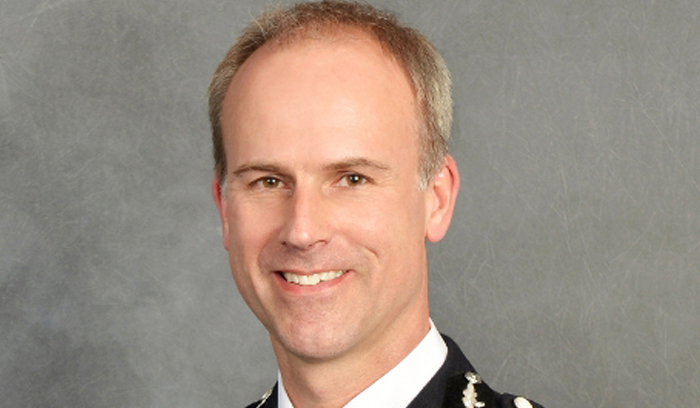
West Mercia Police Assistant Chief Constable Rachel Jones said Mr Bangham, the force’s chief constable, was “passionate about this vital area of policing” and hopes the report will “re-invigorate the commitment to road safety”.
“Within force, we have a robust roads policing and roads safety strategy in place with well-established working relationships with our partner agencies,” she said.
“I am encouraged that our serious injuries and road deaths are down across the three counties within West Mercia, but we recognise there is much to do, as the report outlines, as any road death is one too many.
“As a force, our work is intelligence-led and road safety is no exception. Our Safer Neighbourhoods Teams, working together with roads policing teams, create bespoke local road safety and policing responses across the area.”
Ms Jones added: “We have recently taken part in the national two week speed enforcement campaign detecting over 4,000 speeding offences (a mixture of camera activity and officer lead enforcement) across West Mercia, placing us as one of the highest performing forces across the UK during the campaign. This is just one aspect of our work, which covers a variety of both enforcement and educational elements, not only with motorists but other road users, with our most recent campaign regarding seatbelts also proving successful.
“But we aren’t complacent. There is more to be done. We are currently in a programme of increasing dedicated roads policing officers, which will further strengthen our ability to police the roads. We will continue to work with local and national partners, exploring the findings and recommendations of this report and implementing best practice.
“Road safety and a robust roads policing response will absolutely continue to be a priority for the force.”
The Police Federation of England and Wales (PFEW) said the report highlights an urgent need for resources after years of underfunding.
Gemma Fox, PFEW roads policing lead, said: “It is shameful that chronic underfunding has led to a lack of resources for this vital area of policing. This should not be seen as a failure to enforce, but a failure to resource. I welcome this new focus on roads policing, and I hope that this report is translated into proper funding for my colleagues.”
Tim Rogers, response driving lead for the PFEW, added: “Sadly, this report does not come as any great surprise. The inspectors’ views echo what we have been saying for some time. Roads policing has been allowed to slip down the list of priorities. It has been under-funded meaning that it has become under-resourced and people have been paying for that with their lives.
“I am not sure what it is going to take for the Government, chief officers and PCCs to realise what a critical role roads policing officers play in helping ensure that people can use our roads safely. Between 2015 and 2018, an average of just over 1,600 people lost their lives on our roads network and many more were seriously injured. That should be impactive enough in itself to make police leaders decide to take action.”
Mr Rogers said he hopes the report will be enough to prompt a reinvestment in roads policing.
“We need chief officers and PCCs to act on the recommendations in this report and halt the steady increase in deaths on our roads and tackle the criminal elements making use of our roads network,” he added.
Roads policing or road safety was listed as a priority in only 19 of 43 force plans, the report found. In one 21-page plan, the word ‘road’ appeared only once, where it referred to partner agencies (not the force) being concerned about road safety issues. In another, there was no reference to roads or road safety at all.’
Between 2013 and 2019, the total amount of money spent by police forces in England and Wales on all police functions reduced by about 6.1 per cent. However, the reduction in expenditure for roads policing has reduced by about 34 per cent in real terms (taking inflation into account), which is approximately £120 million, said the PFEW.
As a result, hard-pressed roads officers are having to make difficult decisions about enforcement, said the PFEW, leading to statistics such as a six per cent rise in car occupants who were killed due to not wearing a seat belt, coupled with a corresponding 75 per cent drop in FPNs issued for not wearing a seatbelt.
“In perhaps the most damning statistic, the number of breath tests of motorists were cut by 25 per cent between 2015 and 2018. The proportion of people killed or seriously injured by drink drivers rose by a similar amount over the same period,” it added.

The Association of Police and Crime Commissioners (APCC) lead for road safety, Alison Hernandez, believes the report could be a “pivotal moment” for roads policing.
“This report has come just at the right time,” she said. “Road safety is one of the public’s top priorities and rightly so. Tragically, over the last few years 5,369 people lost their lives on Britain’s roads and a further 74,443 people suffered serious injuries. This is a dreadful loss of life and we all have a part to play in making our roads safer.
“It’s when you spend time with bereaved families and people who are utterly frustrated by the flouting of the law by drivers in their communities that you realise it is our combined duty to do more. Robust roads policing also disrupts other criminality and I have witnessed the pride roads police officers have when they discover a significant drugs haul.
“While there is undoubtedly excellent work being undertaken, it is right that we take stock of what more policing and partners can do. The APCC has, for the first time, established a new portfolio dedicated to road safety and roads policing to take this work forward.”
Ms Hernandez added: “Effective police enforcement of road safety is vital, but this report recognises that the safety of our roads is a collective effort. Enforcement is only one way in which we improve the public’s safety, but it does also have the added value of helping deny criminals the use of our roads too when good intelligence is available and efforts are targeted towards them.
“Along with the Department for Transport (DfT) consultation published earlier this week and the recent study into roads policing and its contribution to road safety by the Parliamentary Advisory Council for Transport Safety, this HMICFRS report will provide us with the most comprehensive understanding of the challenge ahead and importantly demonstrates the determination from all to make the improvements needed to increase the safety of all road users.
“As the APCC’s representative on the Roads Policing Review Board, which commissioned this report, I shall be working with the NPCC, Department for Transport and Home Office to oversee the comprehensive review of road traffic enforcement. There is a renewed effort to make a real change in the safety of our roads by looking at all areas not just the police. I truly believe this is a pivotal moment.”
The HMICFRS inspection forms part of a wider roads policing review by the DfT, including a ‘call for evidence’ to “identify what makes a difference and how the capability and capacity of enforcement services can be enhanced”.
Baroness Vere of Norbiton, the Parliamentary Under Secretary of State, said: “Great Britain has some of the safest roads in the world, but there is no room for complacency and this government is committed to making our roads even safer.
“Whether we examine the causes of road casualties from the perspective of a safe systems approach or the more traditional examination of education, engineering and enforcement, road user behaviour is a key factor affecting road safety.
“Since 2010 we have seen a plateauing in the number of people killed and seriously injured on our roads after years of steadily declining numbers. The Government is determined to improve the current situation. For this reason, the DfT has instituted a roads policing review working with the Home Office, the NPCC and other agencies. As part of this wide-ranging review we are exploring how we can better use intelligence to target dangerous behaviours, how technology can assist in enforcing road traffic law now and in the future and also how to better understand the value of enforcement in influencing road user behaviour and the current enforcement capability.”
She added: “Safety is our focus but it is recognised that other problems also arise when people do not obey traffic laws. This non-compliance can lead to incidents such as breakdowns and collisions, which result in roads being closed or traffic flow being restricted. The consequences of such incidents are delay and disruption as well as an increase in pollution.”
The call for evidence aims to help deliver “the fairest and most operationally effective enforcement capability in police and other agencies to deliver the best outcome for the safety of all road users”. It will run until October 5, 2020.
The PFEW welcomed the Government’s call for evidence and is asking members to use this opportunity to share their views and experience.
Ms Fox said: “This call for evidence is another welcome sign that roads policing is finally getting the attention it deserves. Roads policing has been under-funded and under-resourced for too long, with many officers ‘double hatting’ in roads and other roles. As a result, this vital area of policing has suffered, and the safety of the public has suffered too.
“It is essential that everyone who has feedback on this important issue gets in contact with the DfT to make sure that this report is the best that it can be – leading to positive change for our members and the public we serve.”
Recommendations
The HMICFRS inspection examined how effectively the road network of England and Wales is policed. The report’s publication was deferred as part of the HMICFRS’ suspension of inspection activity in March to enable forces and fire and rescue services to focus on dealing with the Covid-19 pandemic. The forces inspected were: Devon and Cornwall Police, Dorset Police, Humberside Police the MPS, Staffordshire Police, South Wales Police and West Midlands Police.
The inspection sought to establish:
- Are national and local roads policing strategies effective?
- Does capability and capacity match demand?
- Do the police engage effectively with the public and partners?
- How well are police officers trained to deal with roads policing matters?
HMICFRS has made 13 recommendations to the police and other bodies, which it says are intended to:
- Give clarity and guidance about their collective responsibilities;
- Improve forces’ understanding of the risks faced by road users in their areas;
- Make sure forces and road safety partners work together effectively;
- Bring about compliance with national guidance on the use of speed and red-light cameras; and
- Provide greater support and training to officers who investigate road deaths.
The recommendations are:
- By August 1, 2021, the Department for Transport and the Home Office should develop and publish a national road safety strategy that provides clear guidance to the police, local authorities, highways agencies and other strategic partners. The strategy should include an explanation of the roles and responsibilities of each agency and the expectations of central government.
- By August 1, 2021, the Home Office should revise the Strategic Policing Requirement to include an explicit reference to roads policing. Any revision should also include guidance on which bodies the requirement to collaborate with extends to.
- By April 1, 2021, the Home Office should use the statutory power under section 7(4) of the Police Reform and Social Responsibility Act 2011 to issue guidance on what should be included within future police and crime plans. The guidance should require reference to roads policing in all police and crime plans.
- With immediate effect, chief constables should make sure that roads policing is included in their force’s strategic threat and risk assessments, which should identify the areas of highest harm and risk and the appropriate responses.
- By April 1, 2021, the NPCC should review the role and structure of national roads policing operations and intelligence.
- With immediate effect, chief constables should make sure:
- Their force has enough analytical capability (including that provided by road safety partnerships) to identify risks and threats on the road network within their force area;
- That information shared by partners relating to road safety is used effectively to reduce those risks and threats; and
- There is evaluation of road safety initiatives to establish their effectiveness.
- By August 1, 2021, the Department for Transport, in consultation with the Home Office and the Welsh government should review and refresh Department for Transport Circular 1/2007. The Circular should include a requirement that forces, or local road safety partnerships should publish the annual revenue received as a result of the provision of driver offending-related training and how that revenue has been spent.
- With immediate effect, chief constables should make sure that their force (or where applicable road safety partnerships of which their force is a member), comply with [the current version of] Department for Transport Circular 1/2007 in relation to the use of speed and red-light cameras.
- With immediate effect, in forces where Operation Snap (the provision of digital video footage by the public) has been adopted, chief constables should make sure that it has enough resources and process to support its efficient and effective use.
- With immediate effect, chief constables should satisfy themselves that the resources allocated to policing the strategic road network within their force areas are sufficient. As part of that process they should make sure that their force has effective partnership arrangements including appropriate intelligence sharing agreements with relevant highways agencies.
- By 1 August 1, 2021, the College of Policing should include a serious collision investigation module for completion along with the Professionalising Investigation Programme. This should include:
- Minimum national training standards; and
- Certification for all serious collision investigators.
Chief constables should make sure that all serious collision investigators in their force are then trained to those standards.
- With immediate effect, chief constables should make sure that appropriate welfare support is provided to specialist investigators and family liaison officers involved in the investigation of fatal road traffic collisions.
- By 1 April 1, 2021, the College of Policing and the NPCC should establish role profiles for defined functions within roads policing and identify the required skills and capabilities.


